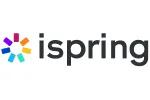ATD Blog
Why Train Medical Personnel Using a Healthcare LMS?
Fri Jul 07 2023

Thinking back to the COVID-19 pandemic, we can recall the unprecedented importance of these two words: healthcare and online. Medical professionals took the blows of global disease and educated people on outbreak prevention while the rest of the world stayed home, adapting to remote work and learning.
Once again, it was demonstrated that healthcare, pharma, and medical education play a tremendous role, and public health directly depends on the level of healthcare training.
We continue this series of articles about online training in different work scenarios, and this one is on e-learning for healthcare and how a learning platform system (LMS) can be helpful.
What Makes an LMS a Must-Have for Healthcare?
First and foremost, if you’re in this industry, you just can’t let things other than patient care and healthcare innovations occupy your mind too much. Many administrative and other tasks already take up much of your time. When personnel work in shifts and can hardly be gathered together in one place, managing classroom-based sessions can be extremely labor intensive.
Leaving training management matters to an LMS will let you focus on what matters most. It lets you keep your courses organized, automatically enroll learners, and track their attendance and progress.
With a proper platform, healthcare training becomes more streamlined and can be accomplished regularly. Here’s what an appropriate LMS for healthcare can do:
Put assignments and enrollments on autopilot.
Notify learners of approaching deadlines.
Collect stats on user performance.
Provide access to training content anytime, anywhere.
Facilitate a great healthcare onboarding experience.
Cut costs of face-to-face training, travel, and accommodation.
Plus, some LMSs work well with blended learning initiatives and help you supervise both classroom and online training schedules. Employees can access online courses and join meetings on the same platform. That way, providing personnel with required regular training becomes much easier.
How Can Training via an LMS Improve Compliance?
Healthcare companies must follow the regulations set out by organizations such as HIPAA or OSHA. Noncompliance leads to fines and other consequences. A unified approach to compliance training is essential for employees to meet ever-changing compliance requirements.
By implementing critical healthcare compliance training, you’ll be able to avoid violations, mitigate risk, eliminate legal liabilities, and set high standards for your employees.
In the long run, moving compliance training online and making it more flexible and less burdensome for employees will help healthcare companies:
Create a safer workplace.
Increase productivity.
Reduce absenteeism (due to injury, mental health issues, etc.).
Secure insurance for the organization.
Protect their reputation.
An example of using an LMS for successful compliance training is Unichem Laboratories, a pharmaceutical giant in India. The company needed to improve employee compliance with pharmaceutical regulations on a large scale.
They had extensive standard operation procedures at hand and converted them into e-learning modules to be delivered via an LMS. That helped Unichem Laboratories transition from live classes to more flexible and consumable online learning and establish effective compliance training for more than 3,200 employees in six locations.
Conclusion
Training is paramount to the work and reputation of healthcare companies. The busy schedules of healthcare professionals and mounting compliance pressure make the challenge of delivering proper employee training even more acute. Fortunately, with the increasing adoption of e-learning in this sphere, healthcare companies can reap many benefits and possibilities.
Using an LMS for online and blended learning initiatives helps lighten trainers’ workload, provides employees with flexible access to knowledge, and lets healthcare companies ensure compliance regulations are being fulfilled. We are confident that, after further exploration, you will discover many other benefits of an LMS for your company. We wish you the best of luck on this journey!

